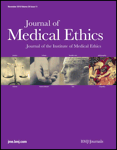
Joachim Boldt, a leading German anesthesiologist who had a 2009 paper in Anesthesia & Analgesia retracted last month* amid allegations that he had misrepresented parts of the study, has been relieved of his duties as chief physician at Ludwigshafen Hospital.
A press release from the German Society for Anesthesiology and Intensive Care Medicine (DGAI) condemns Boldt’s actions. The press release goes on (translated from German): Continue reading After misrepresentation allegations, German anesthesiologist Joachim Boldt out as hospital’s chief physician








